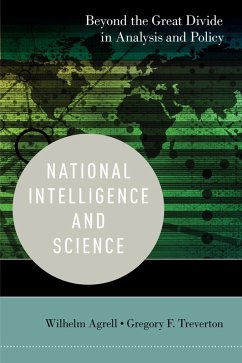Intelligence is currently facing increasingly challenging cross-pressures from both a need for accurate and timely assessments of potential or imminent security threats and the unpredictability of many of these emerging threats. We are living in a social environment of growing security and intelligence challenges, yet the traditional, narrow intelligence process is becoming increasingly insufficient for coping with diffuse, complex, and rapidly-transforming threats. The essence of intelligence is no longer the collection, analysis, and dissemination of secret information, but has become instead the management of uncertainty in areas critical for overriding security goals--not only for nations, but also for the international community as a whole. For its part, scientific research on major societal risks like climate change is facing a similar cross-pressure from demand on the one hand and incomplete data and developing theoretical concepts on the other. For both of these knowledge-producing domains, the common denominator is the paramount challenges of framing and communicating uncertainty and of managing the pitfalls of politicization. National Intelligence and Science is one of the first attempts to analyze these converging domains and the implications of their convergence, in terms of both more scientific approaches to intelligence problems and intelligence approaches to scientific problems. Science and intelligence constitute, as the book spells out, two remarkably similar and interlinked domains of knowledge production, yet ones that remain traditionally separated by a deep political, cultural, and epistemological divide. Looking ahead, the two twentieth-century monoliths--the scientific and the intelligence estates--are becoming simply outdated in their traditional form. The risk society is closing the divide, though in a direction not foreseen by the proponents of turning intelligence analysis into a science, or the new production of scientific knowledge.
Dieser Download kann aus rechtlichen Gründen nur mit Rechnungsadresse in A, B, BG, CY, CZ, D, DK, EW, E, FIN, F, GR, HR, H, IRL, I, LT, L, LR, M, NL, PL, P, R, S, SLO, SK ausgeliefert werden.


